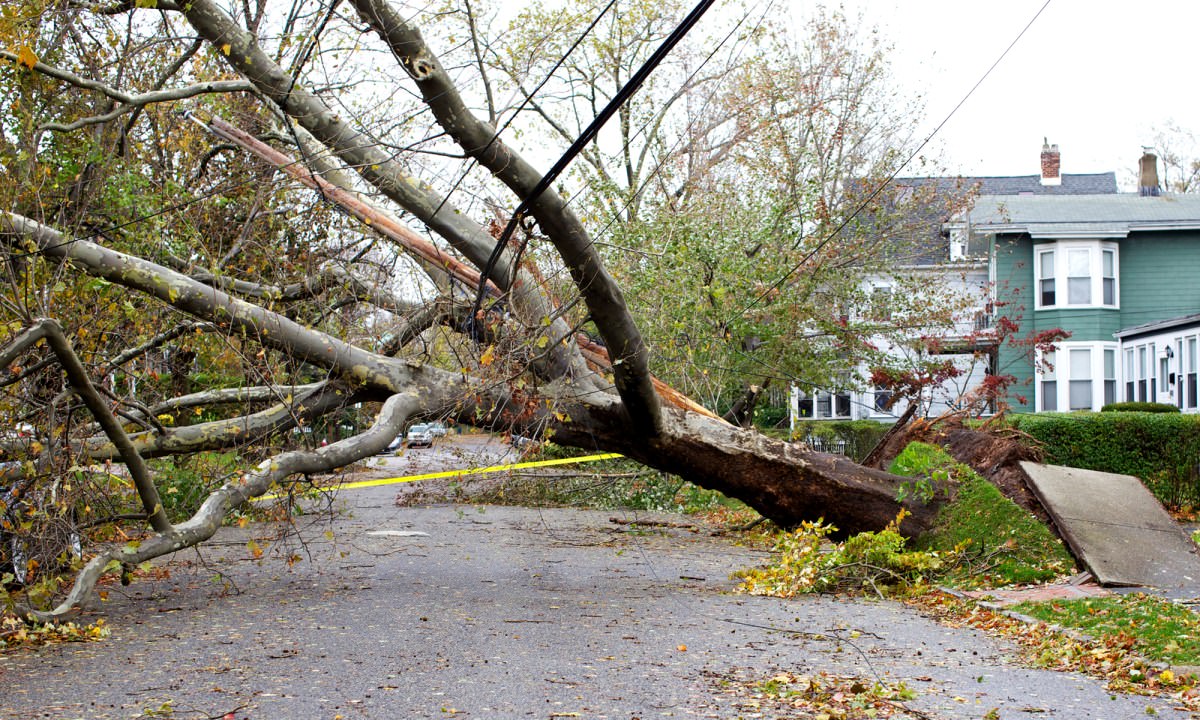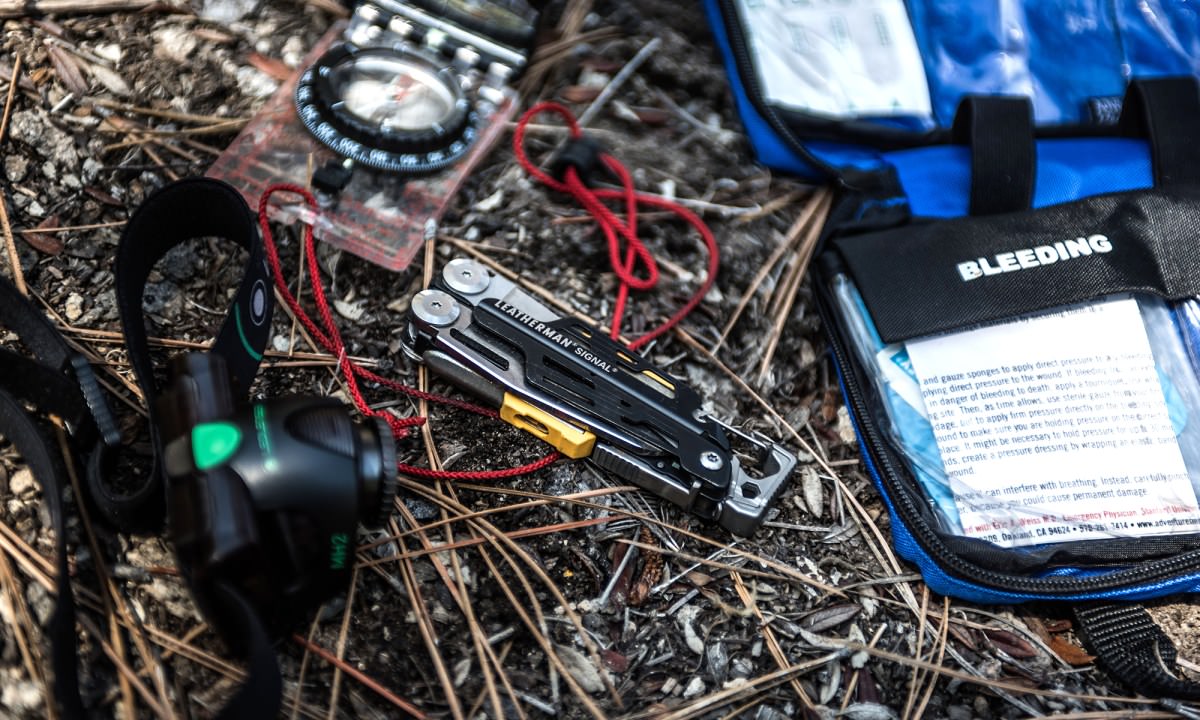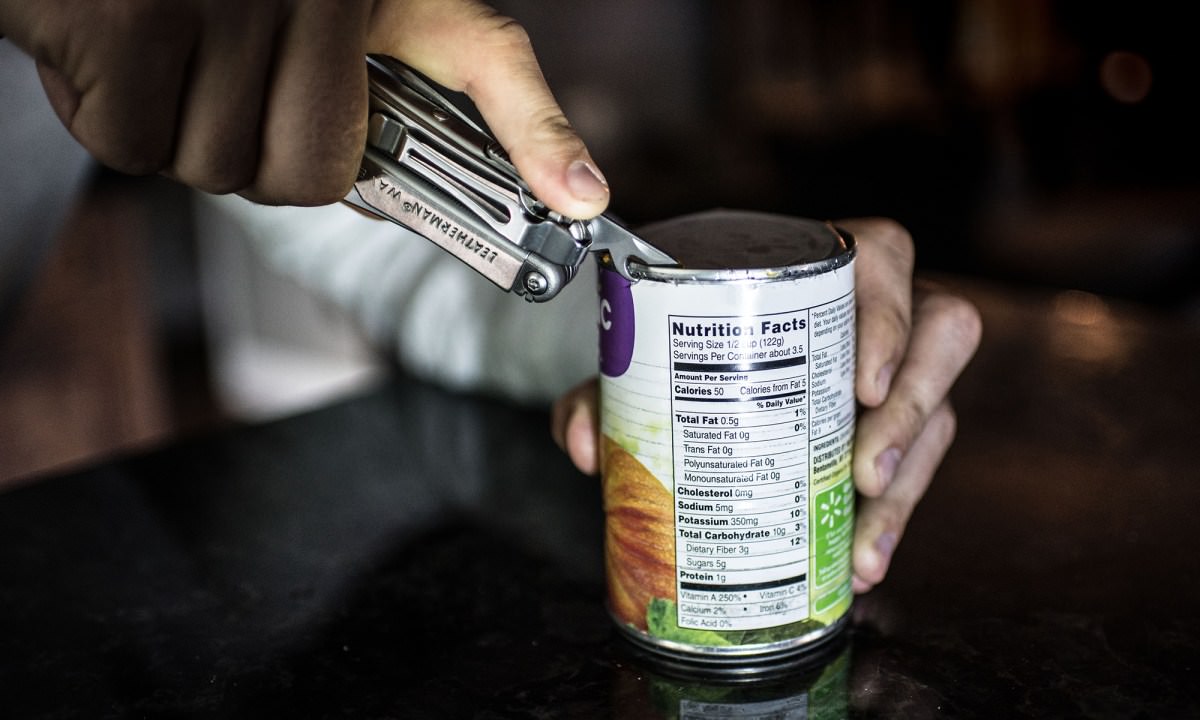You never know when a disaster will strike but you certainly don’t want to be fighting the chaos at grocery and hardware stores.
In the worst case scenario, you will evacuate and depend on friends, family and emergency services to ride out the storm—but in some cases, hunkering down at home is the only option. Hurricanes, tornadoes, floods, avalanches, and earthquakes can all leave you stranded at home until crews can clear the way for road use and access to your location.
When it comes to being prepared, focus on the simple essentials that will keep you healthy and safe until help arrives. You can ride out a storm for a long period of time by taking a few simple precautions and keeping supplies readily available in your home.

Water Needs
Clean drinking water is a top priority and cases of bottled water seem to vanish from the grocery shelves in a hurry when a disaster approaches. Rather than fighting for small bottles, pre-fill multiple large camping jugs with water and use them to refill plastic gallon jugs as needed. Camping water carriers are common in 5-7 gallon durable plastic containers. The average adult requires half a gallon of water a day to stay healthy, so shoot for at least 15 gallons of drinking water per person to last you almost a full month if only used for drinking.
Food Needs
Food is far less important than water, and while you can survive for a long while without any food, maintaining a reasonable calorie intake makes things more bearable. Dehydrated camping meals and MRE’s are ideal because they store for long periods of time and are easy to prepare. Some of these do require water so plan that amount into your freshwater storage supply. Other foods like instant rice, pasta and easy meals that can be prepared on a stovetop make for great emergency meals. You can rotate some of these into your daily cooking while replacing the emergency supply to ensure everything is fresh.
Foods that require minimum cooking time are the best bet. You are strapped for resources and a camp stove with propane is your best choice as electricity is not likely available in an emergency. I’ve been using stove top bags of curry that you simply heat in the bag by placing in boiling water on camp trips. These are filling, tasty and extremely easy to make. You can repurpose the water as well.
Critical Supplies
The first and obvious requirement in an emergency is a first aid kit. Your home first aid kit should be far more robust than your car kit or carry around backpack kit. In a disaster scenario, you may be isolated for long periods of time with serious injuries. Keep plenty of gauze, medical tape, antiseptic, antibiotic ointment, aspirin, and a blood clotting agent for extreme bleeding. It’s also good to have a splint and crutches just in case.
After your first aid is covered, prepare to deal with the elements. Without electricity, you will not have access to heat, air conditioning, or any of the conveniences we take for granted on a daily basis. Prepare based on your environment. If you live in an avalanche zone, stock emergency blankets and sleeping bags that go below zero degrees Fahrenheit on their rating. If you live in the south, keep tarps and bug netting ready to block the sun and insects and stash extra clothes that cover your skin and can protect against extreme sun. Preparing for the worst elements in your climate zone is important.
Lastly, keep some candles, headlamps, and lanterns to navigate through the night. Hopefully you have a few good books and board games in the house too as disaster situations are often a waiting game and entertainment is great for morale.
Tools that Do It All
If you have a chainsaw and power tools that run on gas, that is great, but keeping a stash of tools and fuel isn’t always practical. You may also lose the tool shed and keeping some basic hand tools in your emergency kit provides fallback options. Leatherman Wave and Charge Series are ideal for disaster situations where anything might be thrown your way. They have tools that are common around the house like screwdrivers and knives, pliers and wire cutters to bust through obstacles and handle foreign objects. The Raptor is also a must-have for your medical kit. It can shatter car windows, slice through seat belts and handle medical equipment like oxygen tanks. Additionally, a folding saw is nice for temporary structure building and cutting away materials for firewood and other emergency tasks.

